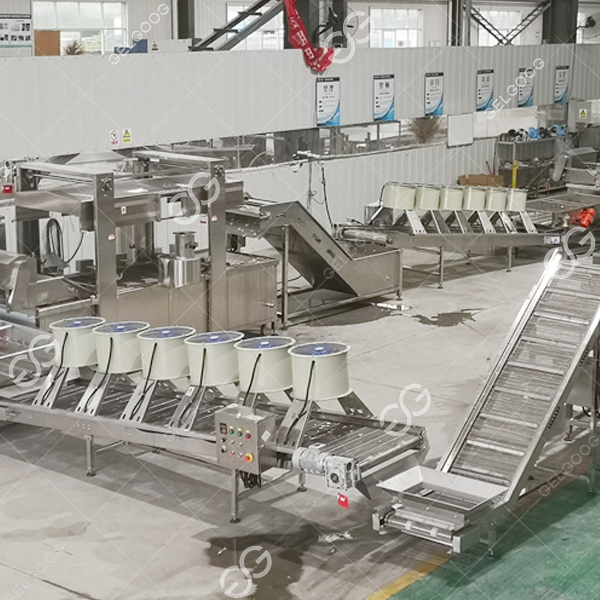Time:2024-12-17 By:Wendy
Banana chips have become increasingly popular in recent years, as consumers are looking for healthier snack alternatives that are still delicious and satisfying. This trend has created a lucrative market for entrepreneurs who want to start a banana chips business. In this article, we'll explore the profitability of the banana chips business and provide tips for launching and growing your own banana chips business.

Banana chips are a healthier alternative to traditional potato chips, which are often high in fat, salt, and calories. They are made from ripe or unripe bananas that are thinly sliced and fried in coconut oil, making them crispy and flavorful. They can be seasoned with a variety of spices and flavors, making them a versatile snack option. Additionally, bananas are widely available and affordable in many parts of the world, making them an accessible ingredient for businesses.
The banana chips market is growing rapidly, driven by consumer demand for healthier snack options. According to a report by Mordor Intelligence, the global banana chips market size was valued at $4.6 billion in 2020 and is expected to reach $7.3 billion by 2026, growing at a CAGR of 7.4% during the forecast period. This growth is attributed to the rising health consciousness among consumers, as well as the increasing availability of banana chips in supermarkets, convenience stores, and online retailers.
The profitability of a banana chips business depends on various factors, such as the cost of ingredients, production equipment, packaging, marketing, and distribution. However, according to industry experts, the profit margins for a banana chips business can range from 30% to 50%, depending on the scale of production and the selling price. This means that a well-managed banana chips business can generate significant profits for entrepreneurs.
The startup costs for a banana chips business can vary widely, depending on the scale of production and the level of automation. For a small-scale operation, the initial investment may be as low as $1,000 to $5,000 for basic equipment, ingredients, and packaging. However, for a larger-scale operation with automated production lines and sophisticated packaging, the startup costs may exceed $100,000.
The production process for banana chips involves several steps, such as selecting ripe or unripe bananas, slicing them thinly, frying them in coconut oil, and seasoning them with spices and flavors. The production can be done manually or using automated machinery, depending on the scale of production. Once the chips are ready, they need to be packaged and labeled before being distributed to retailers or sold online.

Marketing is essential for any business, including a banana chips business. To attract customers, you'll need to create a brand identity, design attractive packaging, and promote your products through various channels, such as social media, online marketplaces, and word-of-mouth referrals. You can also attend trade shows and events to showcase your products and network with potential customers and suppliers.
Like any business, a banana chips business also faces several challenges and risks that can affect its profitability. Some of these include:
Competition from established brands and new entrants
Fluctuating prices of raw materials, such as bananas and coconut oil
Quality control issues, such as ensuring consistent flavor and texture
Shelf life and storage concerns, as banana chips are perishable and need to be stored in a cool, dry place
Regulatory compliance, such as obtaining permits and certifications for food safety and labeling
To succeed in the banana chips business, here are some tips to keep in mind:
Conduct market research to identify your target audience and competition
Develop a unique selling proposition that sets you apart from other brands
Invest in high-quality ingredients, equipment, and packaging to ensure consistent quality and attractive presentation
Establish relationships with reliable suppliers of raw materials
Implement effective inventory management to avoid stockouts and minimize waste
Develop a robust marketing strategy that includes online and offline channels
Monitor customer feedback and adapt to changing trends and preferences
Stay up-to-date with industry regulations and standards
The banana chips business offers a profitable opportunity for entrepreneurs who are passionate about healthy snacking and have a creative flair. With the growing demand for healthier snack options, there is a significant market for banana chips that can be tapped into with the right strategy and execution. While there are challenges and risks involved, careful planning, investment in quality, and effective marketing can help entrepreneurs succeed in this exciting industry.